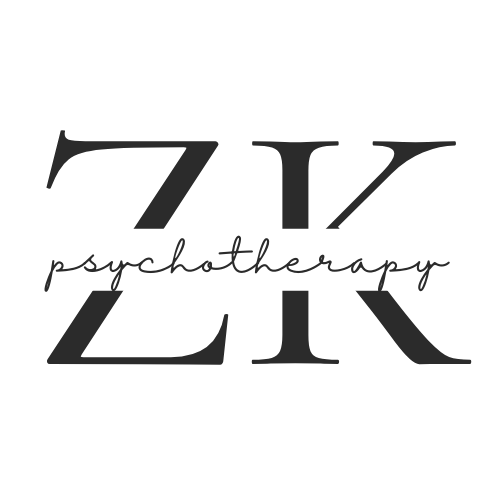Frequently Asked Questions
-
Psychotherapy, or “talk therapy” involves the assessment and treatment of mental health challenges, through a safe therapeutic relationship and evidence-based techniques. Therapists like myself typically work with clients to understand themselves better, process difficult thoughts and feelings, learn how to cope with stressors more effectively, and create meaningful longterm changes in different life areas. There are many different therapeutic modalities and different people will benefit from different approaches at different times. Healing looks different for everyone, and therapy should be a collaborative and safe space to identify what healing means for you.
-
If you’re confused about the terminology surrounding mental health care - you’re not alone! In Ontario, six types of healthcare professionals can provide psychotherapy, including registered psychologists, registered social workers, registered nurses, registered occupational therapists, registered physicians/surgeons, and registered psychotherapists like myself. We all undergo different training and education to become therapists. As a Registered Psychotherapist, I have Masters-level education in counselling and psychotherapy as well as thousands of direct client contact and supervision hours under my belt. I also engage in ongoing clinical supervision and professional development to make sure I am providing the most up-to-date, quality care to my clients.
-
Psychotherapists, psychologists, and psychiatrists all perform “talk therapy.” Psychologists have additional training and education that qualifies them to provide diagnoses for mental health disorders such as anxiety, depression, OCD, etc. Finally, psychiatrists are trained as medical doctors and can therefore also prescribe medication on top of diagnosing and treating. If you’re specifically looking for a diagnosis or medication, a clinical psychologist or psychiatrist might be the best fit for you. You can find a psychologist the same way you probably found me (searching for therapists online), and a family doctor can refer you to a psychiatrist (whose services should be covered under OHIP). If you’re just looking for therapy, a psychotherapist might be the right fit for you.
-
Finding the right therapist is a process! Just like any other relationship in your life, it’s important that you feel safe and comfortable with your therapist and the first one you try might not be the best one for you. Beyond specific qualifications or type of therapy, the strength and quality of the therapeutic relationship has been found to be the most important ingredient to successful therapy. So I encourage taking your time with finding a therapist. Don’t be afraid to set up consultations (they should be free) with a few different therapists and ask lots of questions!
Some questions I might ask a therapist in an initial consultation:
-Do you have experience working with the things I’m dealing with?
-Do you feel comfortable talking about race, culture, identity, privilege, etc. in therapy? How do you support your clients with these experiences?
-How do you work with clients that share [insert specific lived identity or experience]?
-
Unfortunately, psychotherapy is not currently covered by OHIP. However, many insurance providers will partially or fully subsidize your therapy services. Please check with your insurance provider directly around their coverage. Therapy can also sometimes be billed as a medical expense on your taxes. Check with your account about this directly.
Here is a directory for finding therapists offering affordable therapy throughout Canada.
Here is a list of additional free and low cost mental health services in Toronto and surrounding areas.
-
Finding the right therapist for you can take some time. If you are in immediate crisis, and are at risk of harming yourself or someone else, please call 911, go to your local hospital’s emergency department, or speak to a crisis worker at your local distress centre.
The Toronto Distress Centre: 416-408-4357
The Gerstein Centre: 416 929-5200
